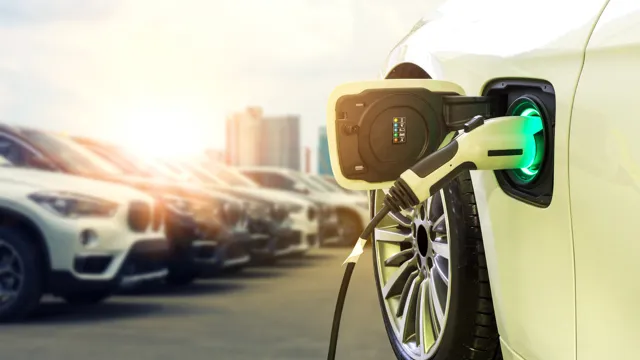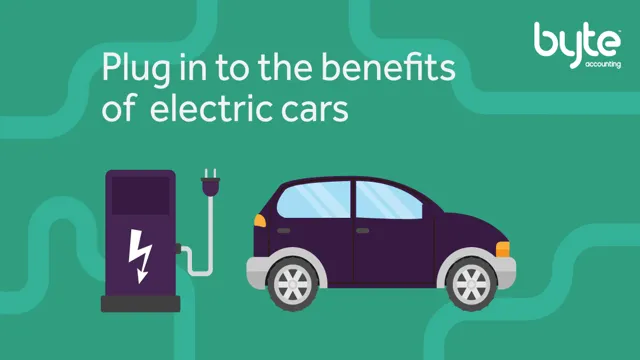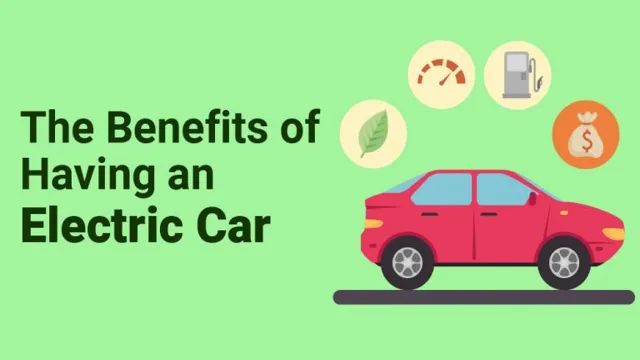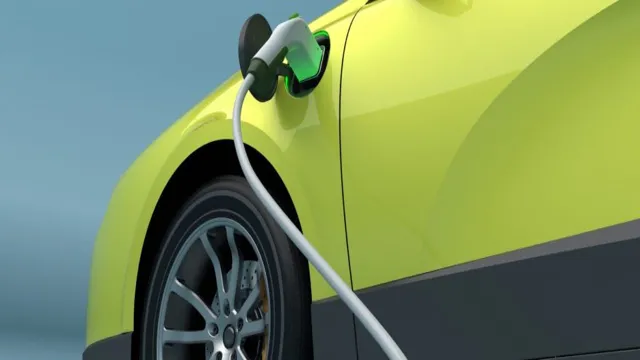Electrify Your Daily Commute: Unveiling the Economic Benefits of Electric Cars in the UK
Have you ever considered how much cars impact the economy? From gas prices to environmental effects, traditional cars can cause a lot of financial and societal strain. However, in recent years, electric cars have entered the market, offering a more sustainable and economically beneficial option. The UK has seen a significant increase in the adoption of electric cars in recent years, with the government pushing for a transition to low-emission transport.
But just what are the economic benefits of electric cars in the UK? Let’s take a closer look.
Reduced Fuel Costs
One of the economic benefits of electric cars in the UK is the reduced fuel costs. In contrast to petrol or diesel cars, electric cars consume less expensive electricity to recharge their batteries. In fact, according to a study by Next Green Car, electric cars can cost as little as 2p per mile to run, which is around four times less than petrol cars.
Furthermore, the UK government also provides incentives such as zero road tax and grants towards purchasing an electric car. This not only saves money on fuel, but also on maintenance, as electric cars have fewer internal moving parts compared to petrol cars, which require regular maintenance and servicing. All in all, switching to an electric car can lead to significant cost savings while also promoting environmental sustainability.
So why not consider making the transition to electric?
Electricity costs less than petrol or diesel fuel, saving you money on your daily commute.
Electricity is quickly becoming the go-to energy source for cars, particularly electric cars. And it’s not just because it’s the more eco-friendly choice – it’s also a financially savvy one. You see, electricity costs less than petrol or diesel fuel, saving you money on your daily commute.
Think about it this way – the cost of petrol or diesel fluctuates regularly, and it’s typically higher than the cost of electricity. By switching to an electric car, you’ll have a better idea of what your monthly costs will be, and you’ll be able to save more money in the long run. Plus, with the increased availability of charging stations, you won’t have to worry about running out of juice on those longer road trips.
So, not only are you doing your part for the environment, but you’re also saving money in the process.

Lower Maintenance Costs
Electric cars have lower maintenance costs compared to traditional gas-powered vehicles, making them an economically smart choice for the average driver in the UK. Electric cars have fewer moving parts than petrol cars, reducing the need for oil changes, spark plug replacements, and other typical car maintenance tasks. Over time, the owner of an electric car will save a lot of money on maintenance costs, especially when considering the rising prices of oil and related car maintenance expenses.
Additionally, electric cars rely more on regenerative braking systems, reducing the wear and tear on the brake pads and rotors, another form of savings for the driver. The economic benefits of electric cars are becoming increasingly clear as more people consider saving both the environment and their wallet when purchasing a new car.
Electric cars have fewer moving parts, reducing the need for maintenance and repairs.
Electric cars are gaining popularity amongst car buyers due to their numerous benefits, including lower maintenance costs. Electric vehicles have fewer moving parts than traditional gasoline cars, which reduces the need for frequent maintenance and repairs. This means that electric car owners can save money that would have been spent on oil changes, brake replacements, and other maintenance costs associated with traditional cars.
In addition, electric motors have a longer lifespan than gas engines, which means that the engines in electric cars are less likely to break down and require costly repairs. With electric cars, you can have peace of mind knowing that you won’t have to spend a fortune on maintenance costs, allowing you to enjoy the many other benefits of owning an electric car. So why not make the switch to an electric car and save yourself money in the long run while reducing your carbon footprint at the same time?
Government Incentives
If you’re considering buying an electric car in the UK, you’ll be happy to know that there are several government incentives available that can help you save money. One of the most significant incentives is the Plug-In Car Grant, which offers up to £3,000 off the cost of eligible electric or hybrid cars. Additionally, electric cars are exempt from UK Vehicle Excise Duty, which can save you hundreds of pounds each year.
You’ll also save money on fuel costs since electric cars are much cheaper to run than traditional petrol or diesel vehicles. Plus, if you install a home charging point, you may also be eligible for a government grant to cover some of the costs. Overall, the economic benefits of electric cars in the UK are significant, and the government is doing its part to encourage more people to make the switch to electric.
The UK government offers grants and tax incentives for purchasing and using electric cars.
If you’re considering purchasing an electric car in the UK, you might be happy to know that the government offers incentives to make the process more affordable. First and foremost, there’s the grant available when you buy a brand new, electric car, or a plug-in hybrid. The grant currently stands at up to £2,500, with an additional £500 available for those who install a home charging point.
This means that you can enjoy a sizeable discount when purchasing an electric vehicle, making it easier to make the switch to eco-friendly driving. In addition to this, there are tax incentives to consider, such as the exemption from certain types of company car tax, as well as lower road tax and company vehicle taxes. With these incentives available, making the switch to an electric car is becoming more accessible for many people, lowers the environmental impact of transport every day.
Reduced congestion charges and free parking in some cities.
As air pollution levels continue to rise in major cities around the world, many governments are introducing incentives to encourage people to use cars less often. One such incentive is reduced congestion charges and free parking in certain areas. This is aimed at encouraging people to use public transport or cycle to work instead of driving their cars.
By reducing the number of cars on the roads, governments hope to decrease the levels of air pollution, which in turn will improve overall air quality. Moreover, the reduced fees and free parking make public transport/cycling a more attractive option for commuters in terms of affordability. By providing these incentives, governments can encourage more people to use alternative modes of transportation and work towards reducing the negative effects of air pollution.
Whether such measures will succeed in the long term remains to be seen, but it is a positive step towards a healthier environment.
Improved Air Quality
Electric cars are a great solution for improving air quality in the UK, and there are economic benefits to making the switch. There is increasing concern about the air pollution caused by fossil-fuel vehicles in cities and towns across the country. As electric cars produce no emissions, they help reduce air pollution, which has a direct impact on public health and the environment.
Furthermore, electric vehicles are relatively cheaper to run than traditional petrol or diesel vehicles, as they require less fuel to cover the same distance. Although there can be an initial higher cost of an electric car purchase, they often save owners money in the long run. There are also tax incentives and government grants available to support the purchase of electric vehicles in the UK.
In summary, electric cars have multiple benefits; they reduce air pollution, which leads to cleaner air and improved public health, and in the long run, they can save owners money.
Electric cars emit zero emissions, improving air quality and reducing health risks associated with air pollution.
Electric cars are an excellent way to reduce air pollution while still enjoying the benefits of a vehicle. One of the biggest benefits of electric cars is that they emit zero emissions, which means they don’t release harmful pollutants into the air when they’re driven. This is great news for people who live in cities, where air quality is often poor due to high levels of traffic.
With electric cars, the air quality in densely populated areas can be improved, reducing health risks associated with air pollution. Driving an electric car is like exhaling pure, clean air, instead of the dirty exhaust fumes that come from traditional gasoline-powered cars. By making the switch to an electric car, drivers can do their part to improve air quality and protect public health, while still enjoying all the convenience and comfort that comes with car ownership.
So, why not make the switch to an electric car today and breathe easier?
Reduction in greenhouse gas emissions can help the UK reach its carbon reduction targets.
Reducing greenhouse gas emissions is not only beneficial for the environment but can also lead to improved air quality for citizens in the UK. Carbon reduction targets are becoming increasingly important for the country, and reducing emissions is the key to achieving them. By decreasing greenhouse gas emissions, there will be fewer pollutants in the air that can contribute to smog and poor air quality.
This can decrease the number of health problems associated with air pollution, such as respiratory illnesses or cardiovascular diseases. It can also improve visibility, making it easier to see and appreciate the natural beauty around us. In short, reducing greenhouse gas emissions can have significant positive impacts on our health, environment, and quality of life.
It is up to all of us to do our part in making this a reality by reducing our carbon footprint and promoting sustainable practices.
Resale Value
One of the economic benefits of electric cars in the UK is their high resale value. Electric cars have a smaller pool of potential buyers due to their higher upfront costs, but this is balanced out by their lower operating costs, government incentives, and environmental benefits. According to Auto Express, electric cars have held their value better than their petrol or diesel counterparts, with some models retaining up to 47% of their value after three years of ownership.
This is great news for electric car owners who may want to sell their vehicle down the line. Additionally, as more and more people switch to electric cars, the demand for used models is expected to rise, further increasing their resale value. This economic benefit not only saves EV owners money in the long run, but it also encourages more people to invest in electric cars, thus contributing to a more sustainable future for all.
Electric cars retain their value better than traditional petrol or diesel cars.
When it comes to selling your car, resale value plays a crucial role in determining how much money you’ll get back. And when it comes to electric cars, the good news is that they tend to retain their value better than traditional petrol or diesel cars. This is largely because electric cars have lower operational costs and are seen as more environmentally friendly, making them more desirable to buyers.
Additionally, electric cars are still a relatively newer technology, which means that there is still a lot of value in them. So if you’re looking to sell your car down the line, an electric vehicle may be a wise investment. Overall, while there are still some uncertainties surrounding electric cars, their resale value is certainly a positive aspect to consider.
Conclusion
In conclusion, the economic benefits of electric cars in the UK are electrifying! From reducing carbon emissions to saving money on petrol, electric cars are driving the way towards a greener, more efficient future. Not only do they offer long-term cost savings for drivers, but they also provide economic benefits for the entire country by creating jobs in the electric vehicle industry. So, let’s charge ahead towards a brighter and more sustainable future with electric cars leading the way!”
FAQs
What are some of the economic benefits of using electric cars in the UK?
Electric cars offer lower fuel costs due to the lower cost of electricity compared to gasoline. Additionally, electric cars are often exempt from certain taxes and charges, such as the Congestion Charge in London. They also require less maintenance than traditional cars, leading to long-term cost savings.
Are there any government incentives for buying an electric car in the UK?
Yes, the UK government offers several incentives for electric car buyers, including a grant of up to £3,000 towards the cost of a new electric car and reduced taxes and charges for electric car owners.
How do electric cars affect the environment and economy in the UK?
By reducing carbon emissions and decreasing the dependence on fossil fuels, electric cars can positively impact the environment and the economy. Electric cars are part of the UK’s plan to reach net-zero emissions by 2050, and they can also help create new jobs in the clean energy sector.
How does the cost of owning an electric car compare to a traditional gasoline car in the UK?
While electric cars may have a higher upfront cost, the long-term savings in fuel and maintenance costs can make them more affordable than traditional cars over time. In addition, electric cars may hold their value better and require less frequent repairs, which can further lower their total cost of ownership.




